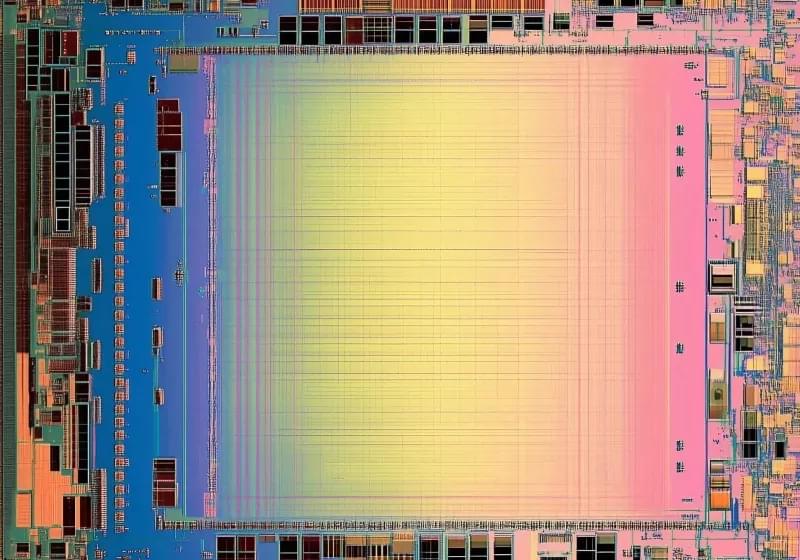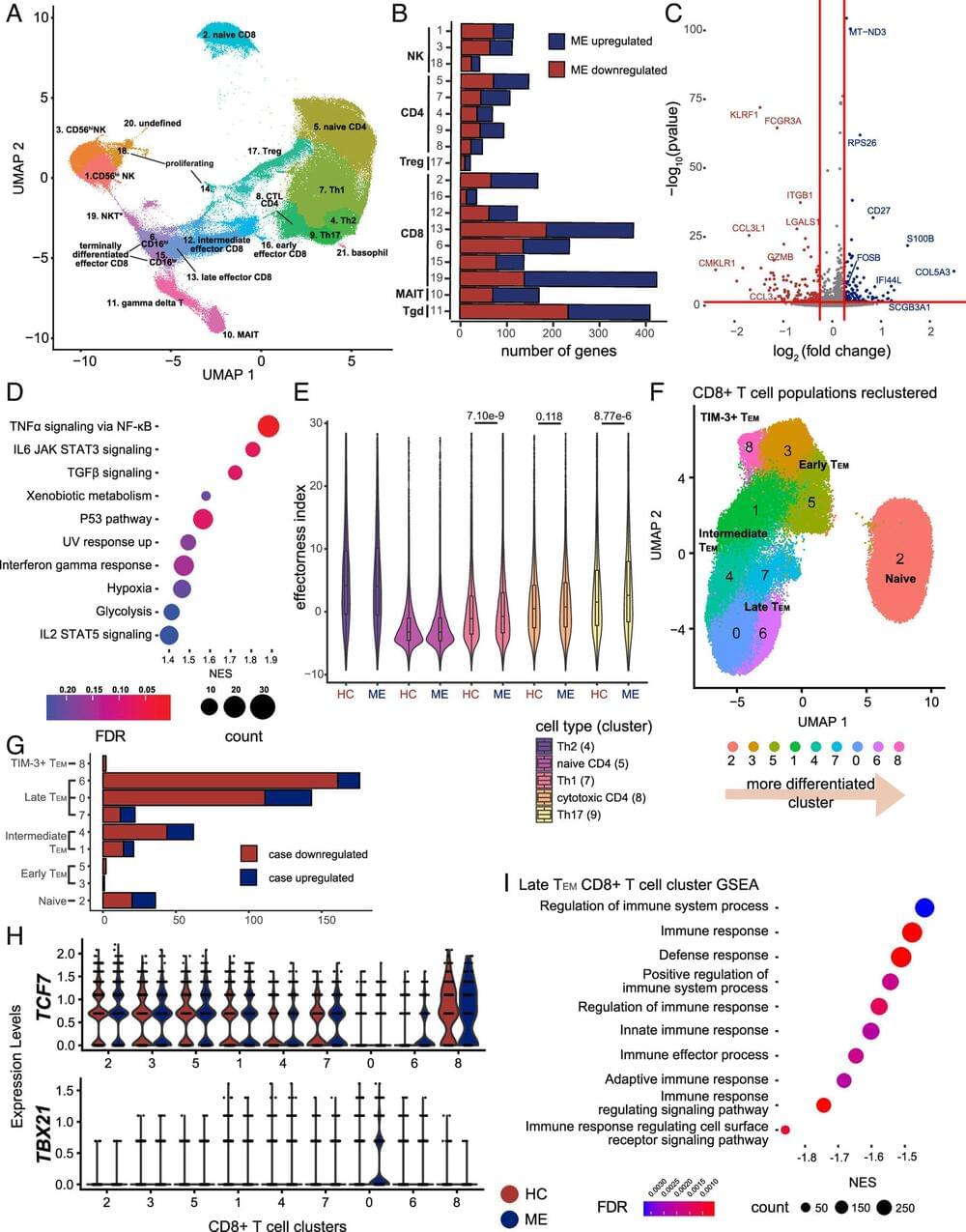Page 70
Dec 27, 2024
Scientists Say They Know How to Find Dyson Rings—and Supercharge the Search for Aliens
Posted by Jose Ruben Rodriguez Fuentes in category: alien life
Dec 27, 2024
Startup’s Universal Processor combines CPU, GPU, DSP, and FPGA into a single chip
Posted by Shailesh Prasad in category: computing
Ubitium doesn’t just envision a single Universal Processor; they’re aiming to build an entire lineup, ranging from tiny embedded devices to high-performance computing systems that could potentially compete with the largest chips from Nvidia, AMD, and Intel.
The potential upsides are tantalizing. For one, Ubitium claims its Universal Processor can deliver 10 to 100 times better performance per cost compared to today’s dedicated chips.
Dec 27, 2024
Japanese team launches research to make living on Moon reality
Posted by Kelvin Dafiaghor in category: biotech/medical
A Japanese university and construction company have partnered on research to develop a lunar habitat capable of generating artificial gravity, enabling people to live on the Moon under conditions similar to those on Earth.
Kyoto University and Kajima Corp. aim to construct a ground-based prototype of the “Neo Lunar Glass,” a paraboloid structure that generates gravity through rotation, by the 2030s.
The technology is expected to address concerns about the adverse effects of prolonged exposure to microgravity on the human body, including bone and muscle loss.
Dec 27, 2024
Azure Open AI Service o1 Models: Transforming Complex Problem Solving
Posted by Kelvin Dafiaghor in category: robotics/AI

Introduction to O1 Models: The O1 series represents a shift from quick, intuitive thinking to slower, more deliberate reasoning. These models are designed to handle complex problems by thoroughly analyzing multiple data sets and reasoning through various dimensions of a problem.
#Microsoft #MicrosoftAzure
Dec 27, 2024
New Planet in Kepler-51 System discovered using James Webb Space Telescope, JWST
Posted by Natalie Chan in category: space
The unusual system of three ‘super puff’ planets has at least one more planet, revealed by its gravitational tug on other planets. An unusual planetary system with three known ultra-low density “super-puff” planets has at least one more planet, according to new research led by researchers from Penn State and Osaka University. The research team set out to study Kepler-51d, the third planet in the system, with NASA’s James Webb Space Telescope (JWST) but almost missed their chance when the planet unexpectedly passed in front of its star two hours earlier than models predicted. After scrutinizing new and archival data from a variety of space and Earth-based telescopes, the researchers found that the best explanation is the presence of a fourth planet, whose gravitational pull impacts the orbits of the other planets in the system.
The new planet’s discovery is detailed in a paper appearing Dec. 3 in the Astronomical Journal.
“Super puff planets are very unusual in that they have very low mass and low density,” said Jessica Libby-Roberts, Center for Exoplanets and Habitable Worlds Postdoctoral Fellow at Penn State and co-first author of the paper. “The three previously known planets that orbit the star, Kepler-51, are about the size of Saturn but only a few times the mass of Earth, resulting in a density like cotton candy. We think they have tiny cores and huge atmospheres of hydrogen of helium, but how these strange planets formed and how their atmospheres haven’t been blown away by the intense radiation of their young star has remained a mystery. We planned to use JWST to study one of these planets to help answer these questions, but now we have to explain a fourth low-mass planet in the system!”
Dec 27, 2024
Immune T cells become Exhausted in Chronic Fatigue Syndrome Patients
Posted by Natalie Chan in category: biotech/medical
Chronic fatigue syndrome creates conditions where pathogen-killing immune T cells become exhausted, according to a new Cornell University study.
The study’s authors knew the immune system was dysregulated in patients with myalgic encephalomyelitis/chronic fatigue syndrome (ME/CFS) but wondered which parts shift with the condition.
A systematic exploration revealed that key CD8+ T cells displayed one of the most pronounced signatures of dysregulation, with signs of constant stimulation that lead to an exhausted state, a condition that is well-studied in cancer.
Dec 27, 2024
Northwestern Engineers Achieve Quantum Teleportation Over Existing Internet Cable
Posted by Paul Battista in categories: computing, internet, quantum physics
Northwestern University engineers have achieved quantum teleportation over fiber optic cables already carrying Internet traffic, an advance that could simplify the infrastructure needed for quantum computing and advanced sensing technologies, the university is reporting.
The study, published in Optica, demonstrates that quantum communication can coexist with classical Internet signals in the same cable.
“This is incredibly exciting because nobody thought it was possible,” said Prem Kumar, an electrical engineering professor at Northwestern and the study’s lead researcher. “Our work shows a path towards next-generation quantum and classical networks sharing a unified fiber optic infrastructure. Basically, it opens the door to pushing quantum communications to the next level.”
Dec 27, 2024
Switching Gene Therapy On and Off with a Pill
Posted by Shubham Ghosh Roy in category: biotech/medical
Besides offering a gene expression switch, MeiraGTx attends to vector optimization, manufacturing, and pipeline expansion.
Dec 27, 2024
Study finds high levels of toxic ‘forever chemicals’ in popular smartwatch bands
Posted by Shubham Ghosh Roy in categories: biotech/medical, chemistry, food, health
Smartwatch bands from popular brands have been found to contain high concentrations of toxic for forever chemicals, also known as PFAS (per-and polyfluoroalkyl substances). These synthetic chemicals do not break down easily in the environment and build in our bodies over time, hence earning them the nickname of forever chemicals.
PFAS are used in various consumer products, including non-stick cookware, water-resistant clothes, carpets, mattresses, food wraps, and more. Exposure to PFAS has been linked to serious health problems, including increased risks of certain cancers, hormone disruption, weakened immune systems, and developmental delays in children. These chemicals can leach into water, soil, and food, making them a growing public health concern worldwide.
A new study published in the journal Environmental Science & Technology Letters has found that smartwatch bands made of fluoroelastomers contain a very high concentration of a forever chemical known as perfluorohexanoic acid (PFHxA).
















